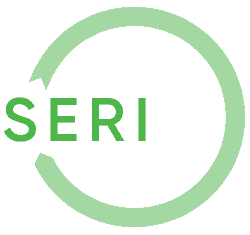R2 Guidance & Knowledge Base
Notice to R2-Certified Facilities about compliance with the Basel Convention
Notice to R2-Certified Facilities about compliance with the Basel Convention
The Introduction to the R2v3 Standard states that “while the R2 Standard specifically requires that domestic and international trade in used and end-of-life electronics be conducted legally and responsibly, it does so by requiring the certified organization to document and provide evidence of a qualified assessment of legal compliance. This requirement is made explicit in R2 by requiring presentation of self-assessment of compliance (including documentation specific to each organization) with the laws and regulations of all importing, transit, and exporting countries.”
In January 2021, changes to international law in the Basel Convention went into effect on the transboundary movement of plastic waste, including hazardous (A3210), non-hazardous (B3011), and plastic waste, subject to special consideration (Y48). Some electronics will contain A3210 hazardous plastic, most commonly because of brominated flame retardants. Many plastics recovered from electronics are likely Y48 shipments when exported unless they have undergone processes to separate the polymers and reduce contamination to low levels. The bulk of plastics from electronics – even those that have undergone preliminary sorting steps – are likely to fall into the Y48 classification, which consists of mixes of different polymers. For more information, please read the text of the Basel Plastic Waste Amendments.
Most countries in the world have ratified the Basel Convention. For them, this is a process change to use the Basel Prior Informed Consent (PIC) process of notice and consent for transboundary shipments of Y48 plastics. While this may be an extra administrative headache that slows trade, the flow of plastics is not prohibited. However, because the United States has not ratified the Basel Convention, the normal trade of Y48 plastics may no longer be possible for U.S.-based facilities due to the Basel party-to-non-party trade prohibition. U.S. facilities can only ship B3011 non-hazardous and separated plastics to non-OECD countries.
The purpose of the R2 Standard is to facilitate the environmentally sound management of used electronics. While the facilities recycling these Y48 plastics in countries around the world may be deemed qualified R2 downstream vendors practicing environmentally sound management, the opportunity to use these downstream vendors may not be the same for all R2 facilities because of the Basel Convention legal requirements. Shipments from the United States of Y48 plastics to non-OECD countries are likely not legal in the importing country because of the importing country’s obligations to the non-party trade prohibition in the Basel Convention.
In one specific scenario, this has led to confusion because plastics brokers are presenting import permits from Malaysia that allow the import of Y48 plastics from the United States. However, Malaysia is a signatory to the Basel Convention and, therefore, should not be importing Y48 plastics from the United States. All of this is very complex and dependent on multiple factors under multiple treaties, laws, and bilateral agreements.
However, plastics are not the only material stream facing recent or upcoming trade prohibitions. Even more changes to the Basel Convention are set to take effect on January 1, 2025, which will further restrict the global trade of e-waste. You can read more about them here Basel Convention E-waste Amendments. This will necessitate further evaluation and possible modifications to an R2 facility’s recycling chain to maintain legal compliance.
While there may be environmentally sound solutions in the global economy, those solutions are pre-empted by legal compliance with local, national, and international laws. R2-Certified facilities are required to comply with the law, and if there is a conflict between a law and the R2 Standard, the R2 facility must adhere to the law. The SERI Board of Directors affirmed this in a resolution unanimously adopted on January 8, 2024.
“The SERI Board reiterates that all R2 Certified facilities and their downstream vendors must comply with the provisions of national and international law, including the Basel Convention, for all electronics and material streams.”
Considering the plastics change already enacted on January 1, 2021, and the coming e-waste changes on January 1, 2025, to the Basel convention, as well as the confusing landscape caused by countries issuing import permits to activities that are explicitly illegal under the Basel Convention, SERI will be expecting R2 Certified facilities in all countries to affirm that all imports and exports regulated under the Basel Convention by you or your downstream vendors are legally compliant, documented, and audited for legal compliance according to the R2 Standard no later than December 31, 2024. Certification Body auditors will be instructed on how to specifically look for legal compliance with these Basel changes and take the appropriate steps to write and close these nonconformities.
SERI’s goal is to help R2 facilities comply with the Basel Convention and to strengthen oversight to ensure compliance and maintain the rigor and credibility of the R2 Certification mark while trying to find responsible and sustainable long-term solutions to e-waste. SERI is working to publish guidance in the Knowledge Base to help R2 facilities comply with the Basel Plastic Waste Amendments and the E-Waste Amendments. SERI has assembled a working group from the R2 TAC and other plastics experts to explore solutions to the global challenge to recycle e-waste plastics and will continue to convene this forum for further activities. Additionally, SERI recently commissioned a stakeholder engagement research project that explored the current plastics recycling environment, and the findings will be made available soon. Lastly, SERI will be recommending to the R2 TAC to add A3210 and Y48 plastics to the R2 Equipment Categorization as an R2 Controlled Stream to further clarify the downstream management of these Basel-listed wastes.
Please look for further information as it is released in the R2 Update newsletter and on the R2 LinkedIn Page. If you have questions, you can email us at info@sustainableelectronics.org and our team will get you more information.
